While AI traffic is growing as a referral source, Google still dominates by a factor of 345x, and Reddit out-refers all three major AIs combined.
As it stands AI traffic isn’t making much of a dent, so is it worth pursuing?
Here’s what we know so far…
Sidenote.
Thanks to our data scientist Xibeijia Guan for aggregating all of the data behind this research.
We studied the traffic makeup of ~35K websites, and found that AI sends just 0.1% of total referral traffic—far behind that of search, and just slightly below email.
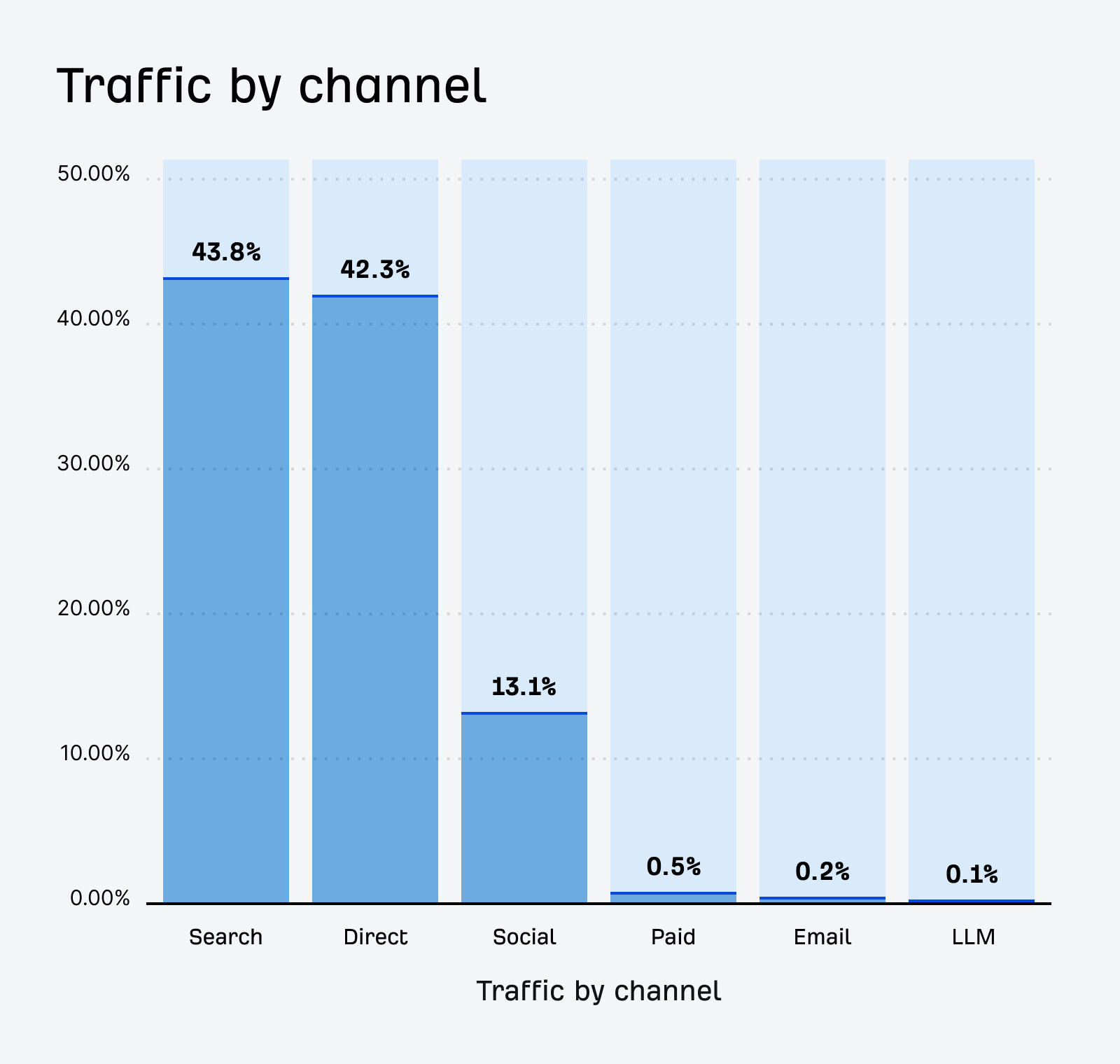
Breaking that down by source, we found that Google sends 345x more traffic than the three main AIs combined
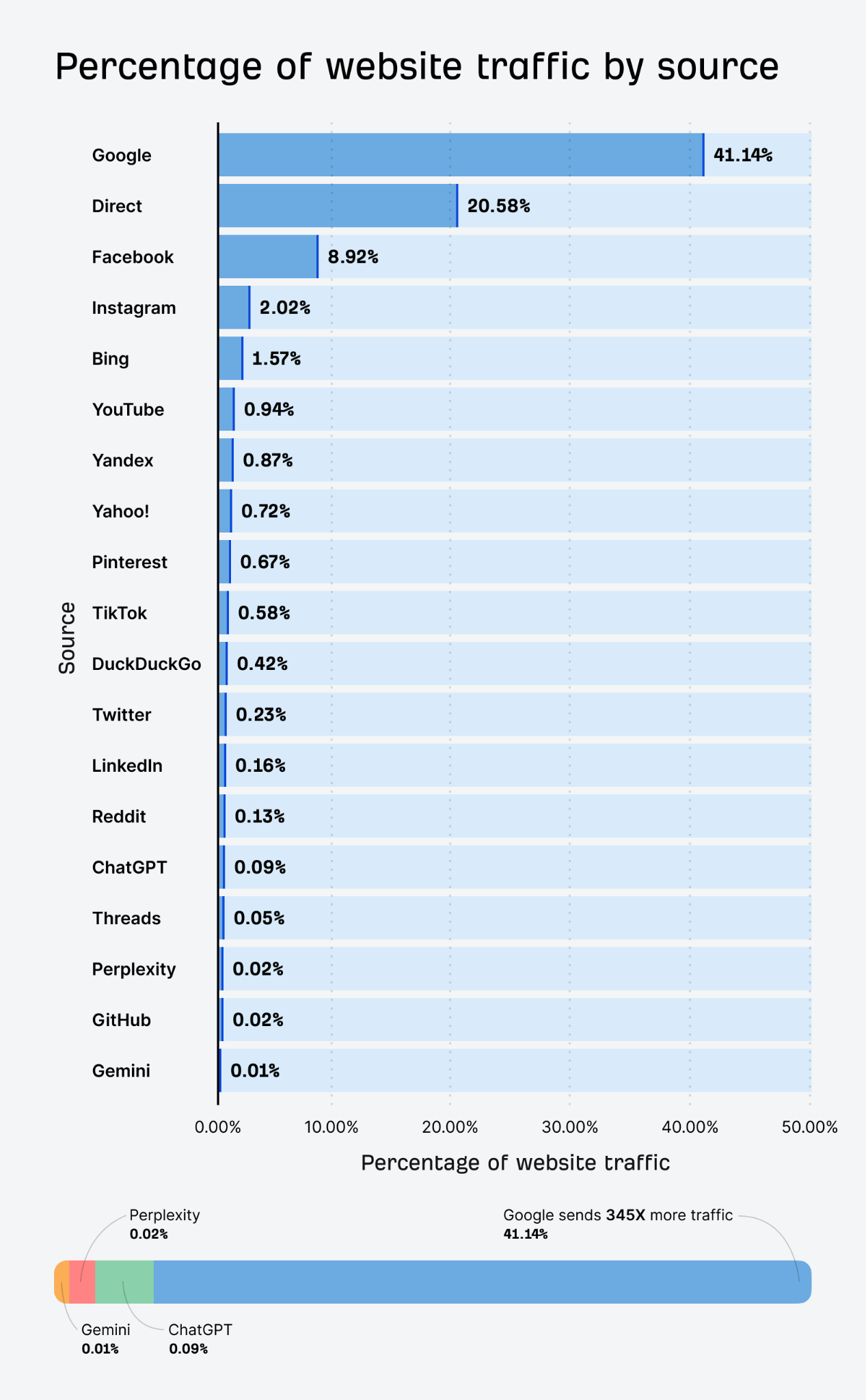
To put AI referral traffic into context, the three major AIs (ChatGPT, Perplexity, and Gemini) send over roughly the same percentage traffic as Reddit.
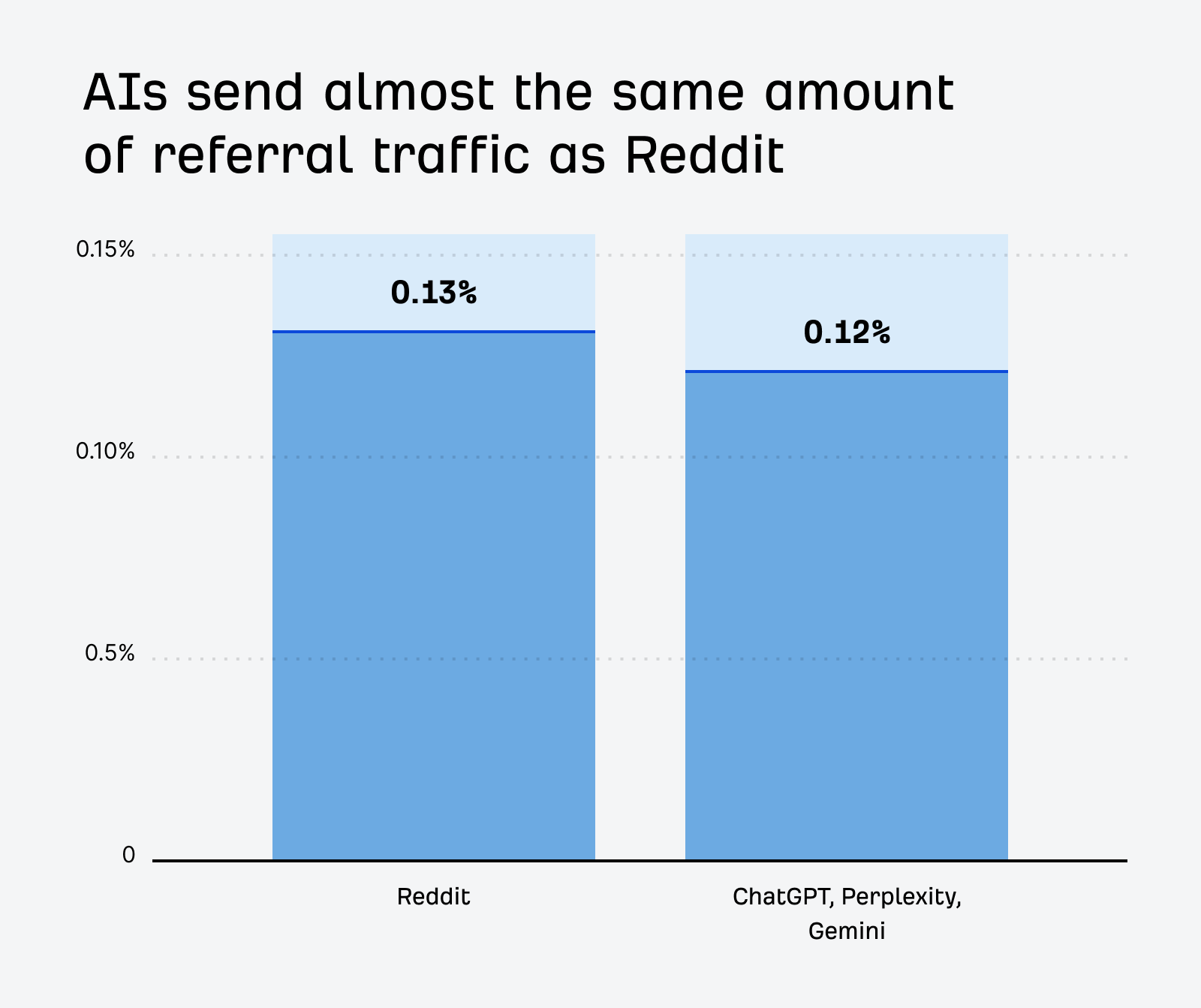
According to our research, referral traffic from Reddit only began picking up back in November 2024 and already it has overtaken AI.
This has some of us questioning whether we’re over-investing in AI, vs. other channels.

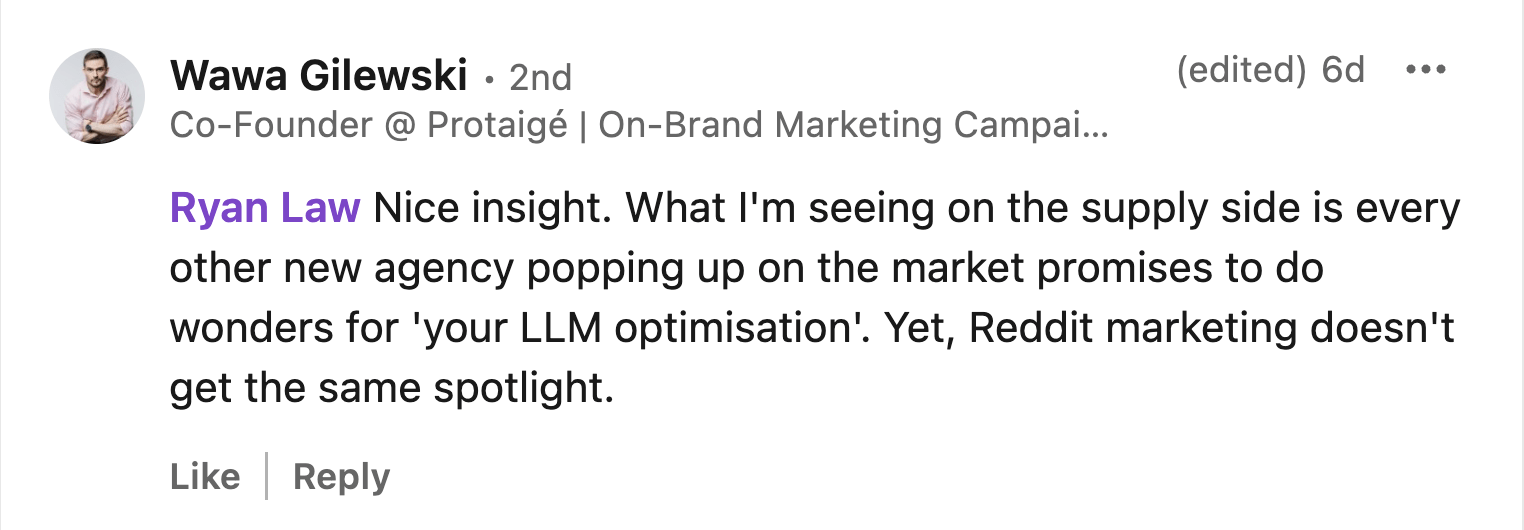
But traffic isn’t the only thing that matters.
It’s also about awareness and conversions, and we’re seeing signs that AI can deliver on both fronts.
For instance, approximately 3% of our own conversions have come from AI over the last year, based on registration data, and qualitative “how did you hear about us?” responses.
You should expect AI traffic from ChatGPT, Perplexity, and Gemini in that order—with ChatGPT accounting for roughly 50% of that (based on data in our earlier AI traffic study).
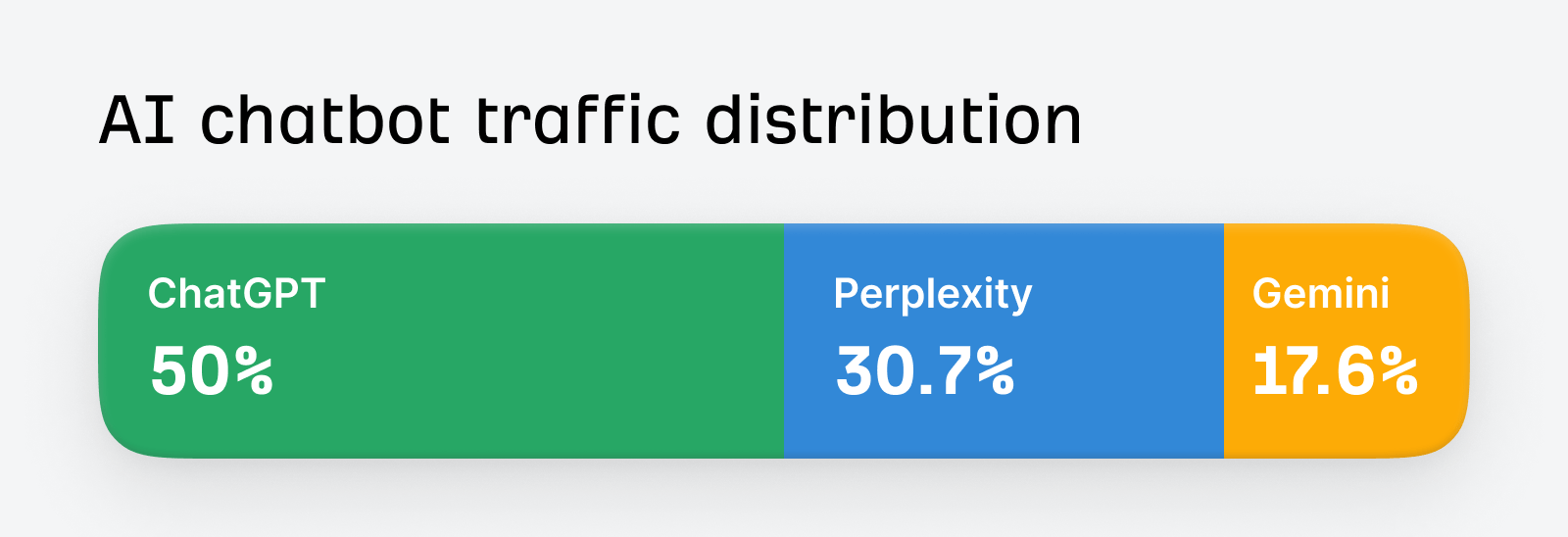
Our new research shows that Perplexity has overtaken Gemini as a traffic referral source.
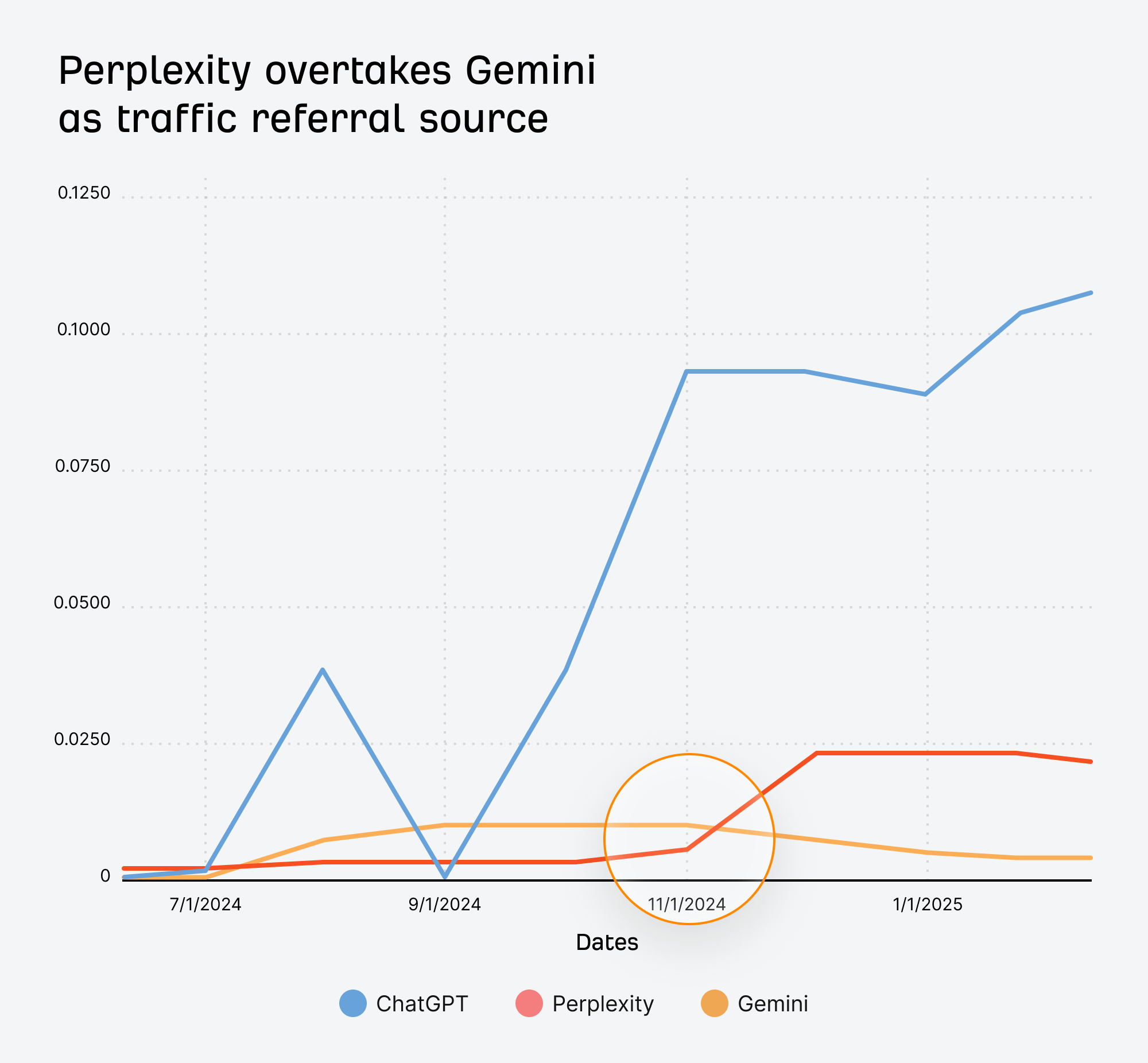
According to data from Kevin Indig, Perplexity is the AI most likely to cite a brand in its responses, which does a lot to explain this growth.
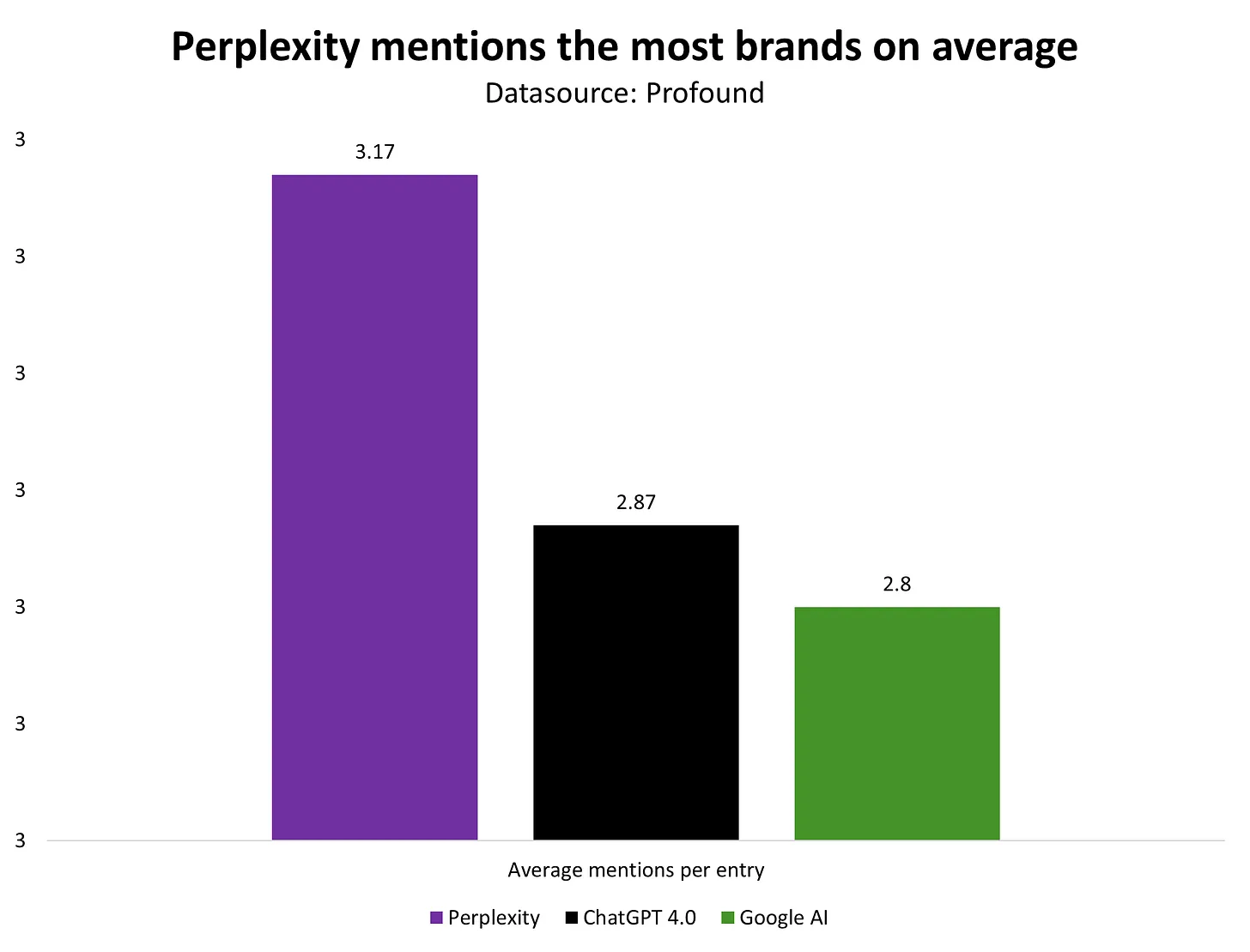
In the same study, Kevin reveals that brand mentions in ChatGPT correlate most with a site’s domain rating, while Perplexity and AI overview mentions correlate with deep content.
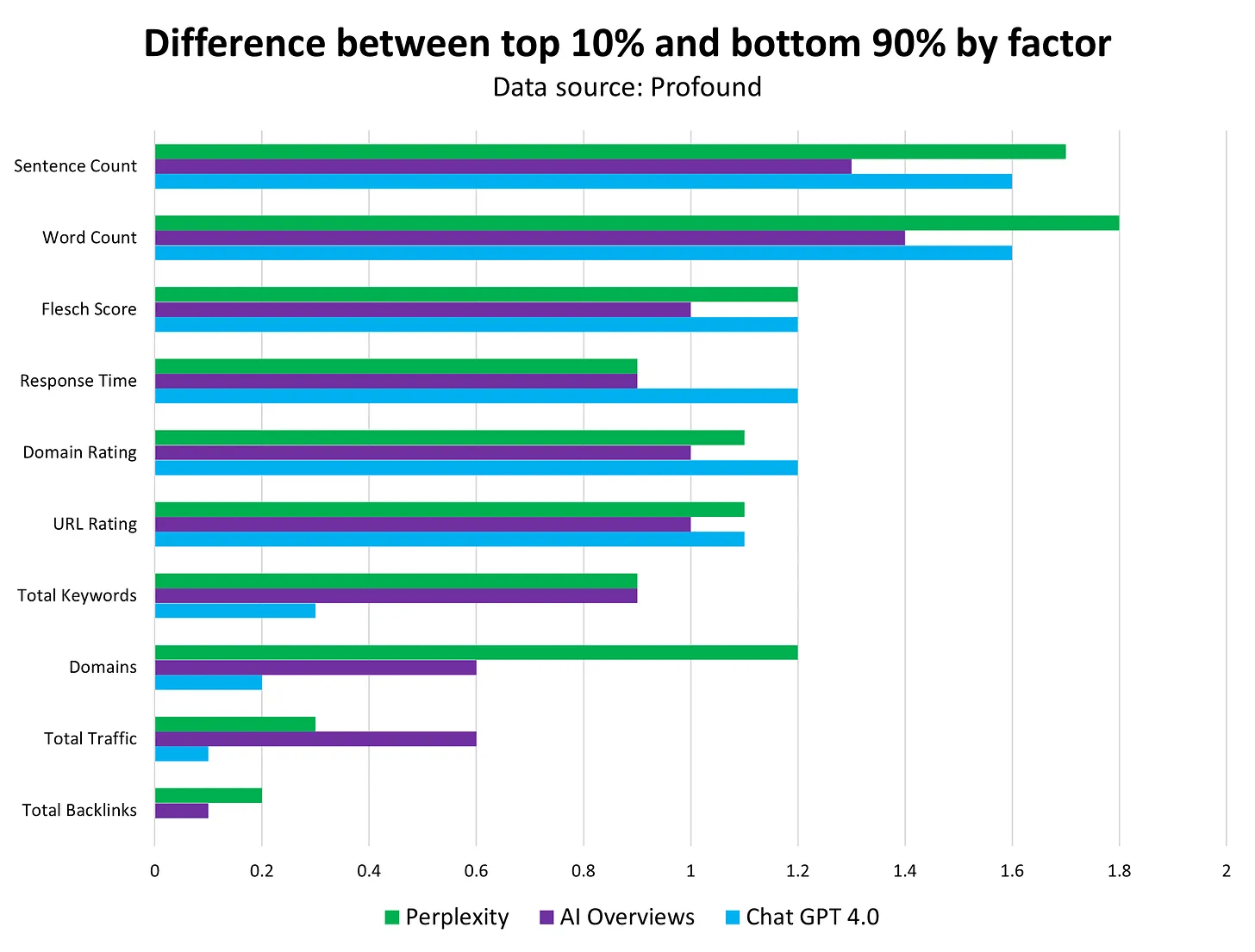
You’re about 1.6 times more likely to receive AI traffic in the US than in India or the UK—the next-highest regions, according to our data.
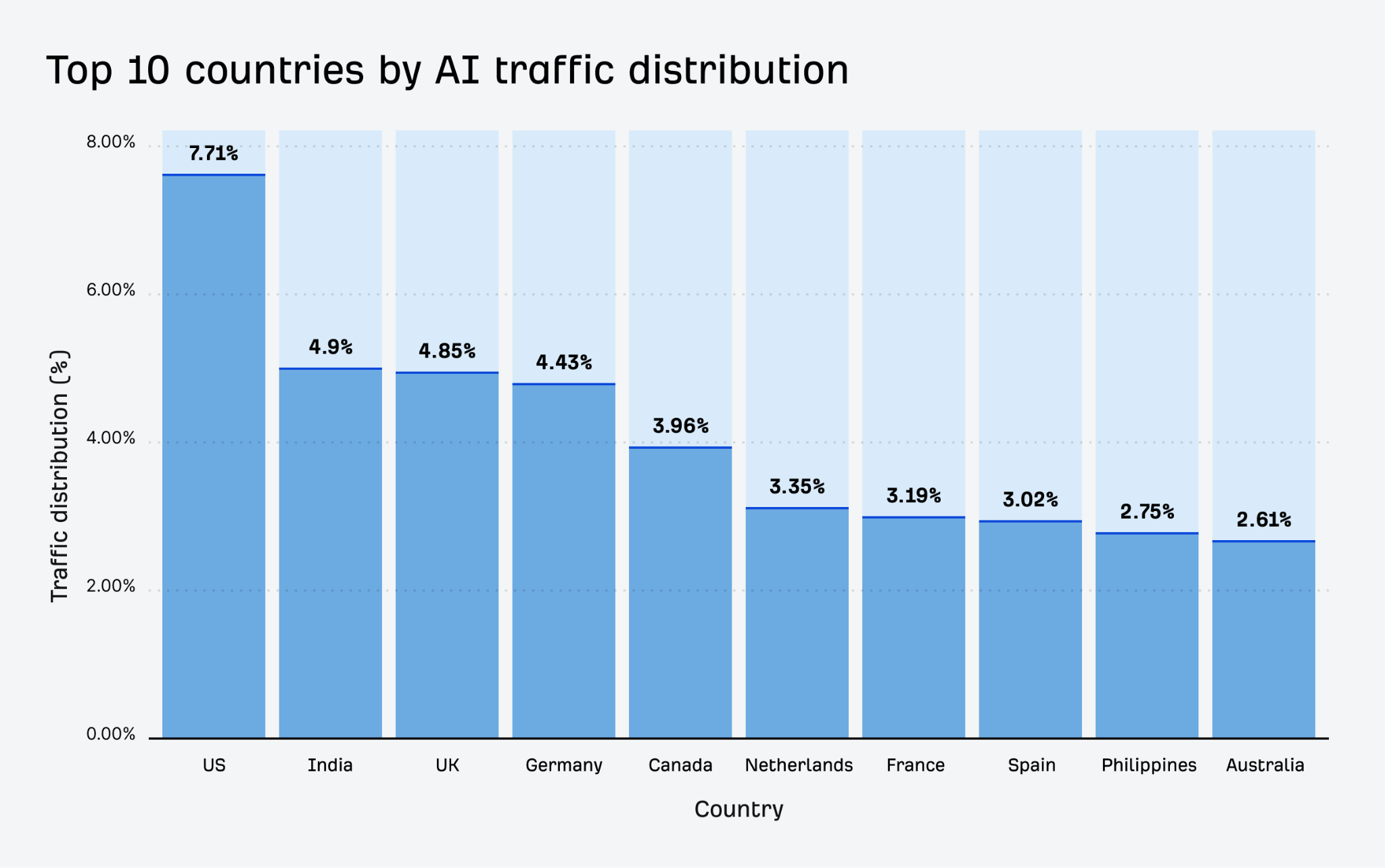
And if you’re in the “Business & Industrial” sector, even better. You have double the chance of receiving AI traffic vs. the two other most-referred industries of “Jobs & Education” and “Health”.
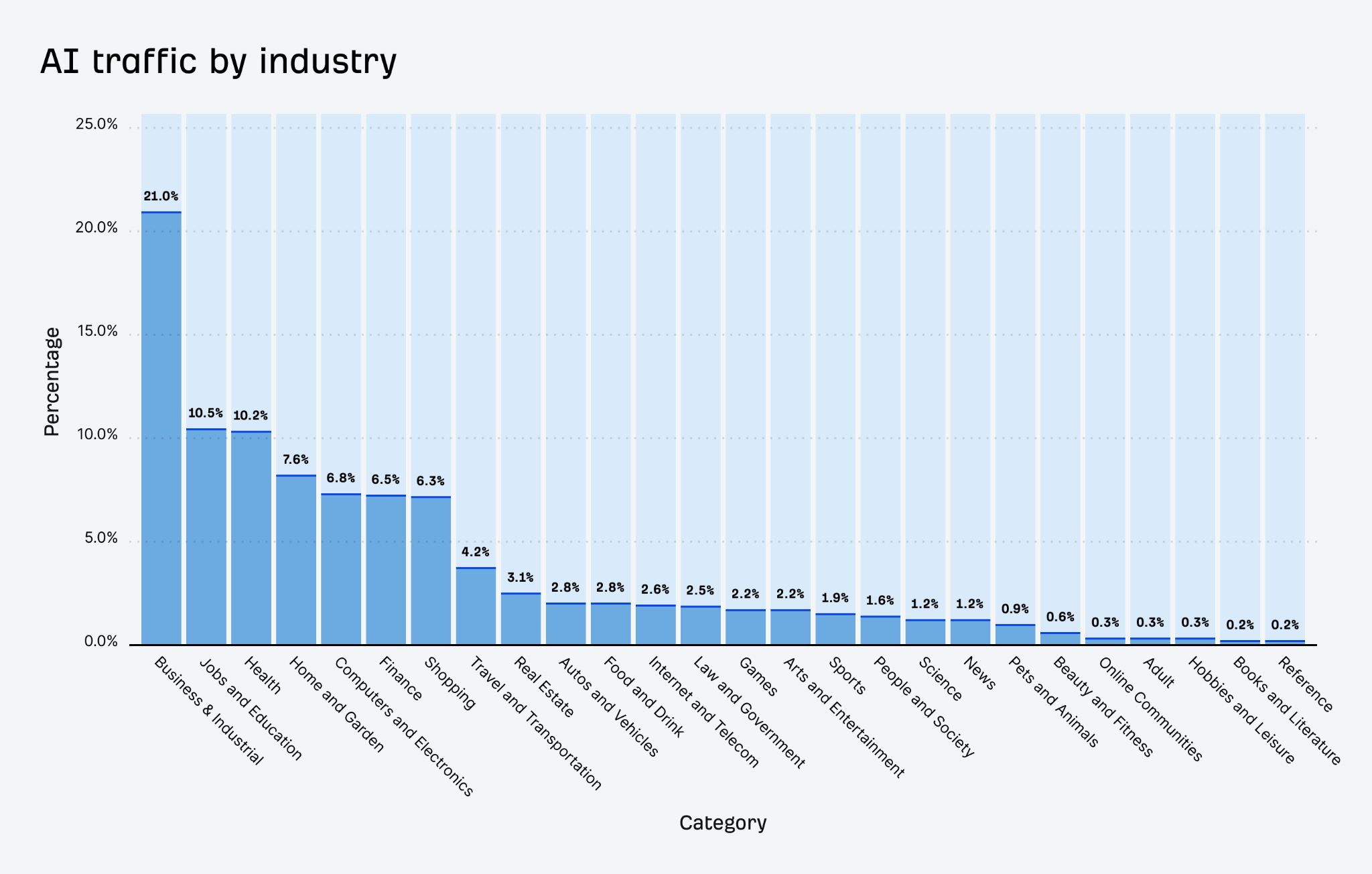
If your site sits outside of these regions and industries, actively pursuing AI traffic could provide diminishing returns.
Our latest data shows that smaller sites capture more AI traffic as a percentage of their total traffic, which supports findings in our earlier AI traffic research.
Sites receiving under 10K visits can now expect 0.3% of their traffic to come from LLMs, vs. 0.1% for those exceeding 1 million visits.
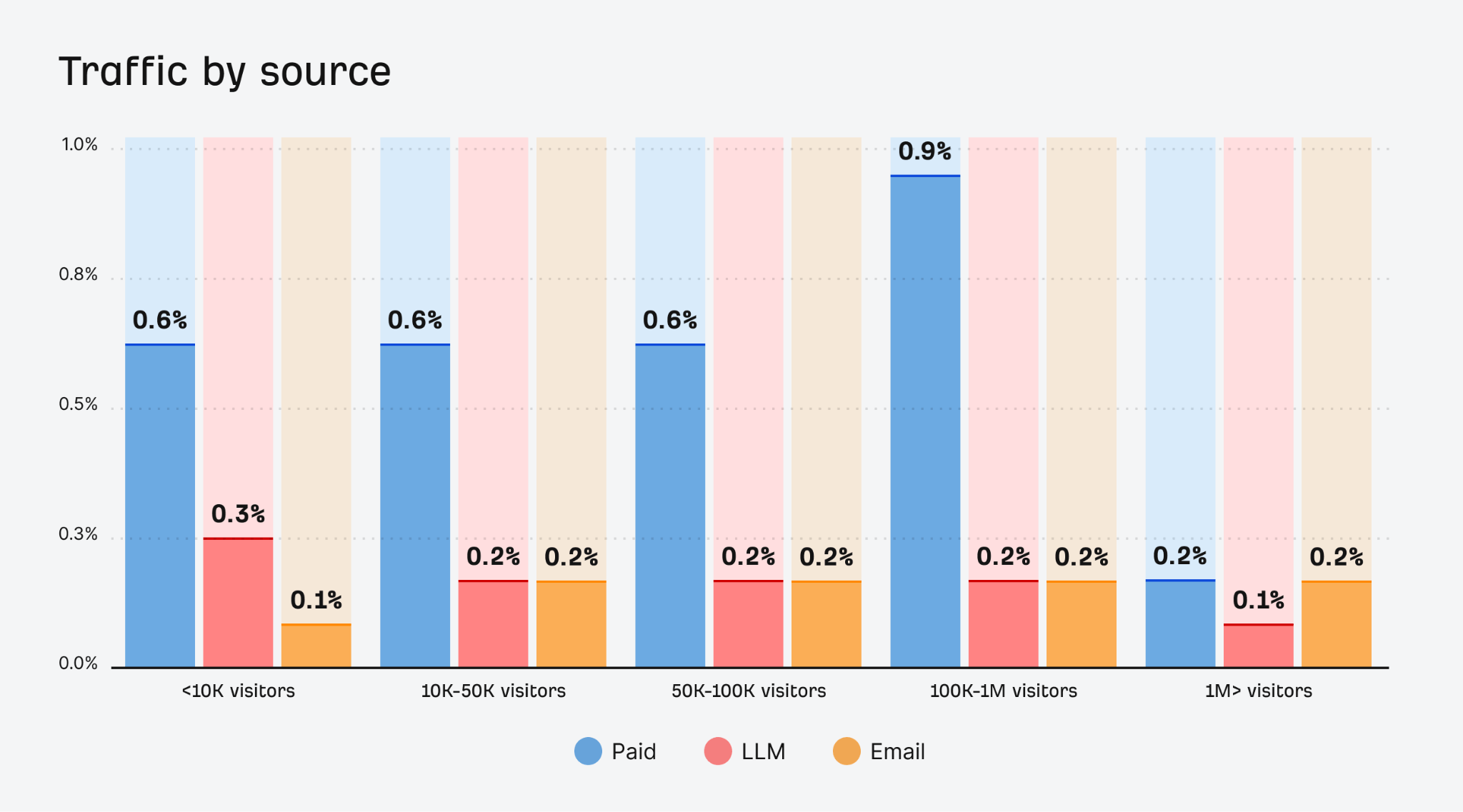
Smaller sites also tend to attract more traffic from AI than they do from email, while the opposite is true of larger sites.
One possible explanation for this discrepancy is that smaller sites and brands are less familiar to the user, resulting in more research-geared clicks.
We analyzed the types of content and pages that pick up AI traffic, by analyzing keyword frequency in URLs that earn AI traffic.
To do this, we:
- Grouped URLs by domain
- Extracted unique words from URL paths
- Deduplicated extracted words
- Cleaned data (remove digits, common words, single letters, language TLDs)
- Aggregated word occurrences across domains
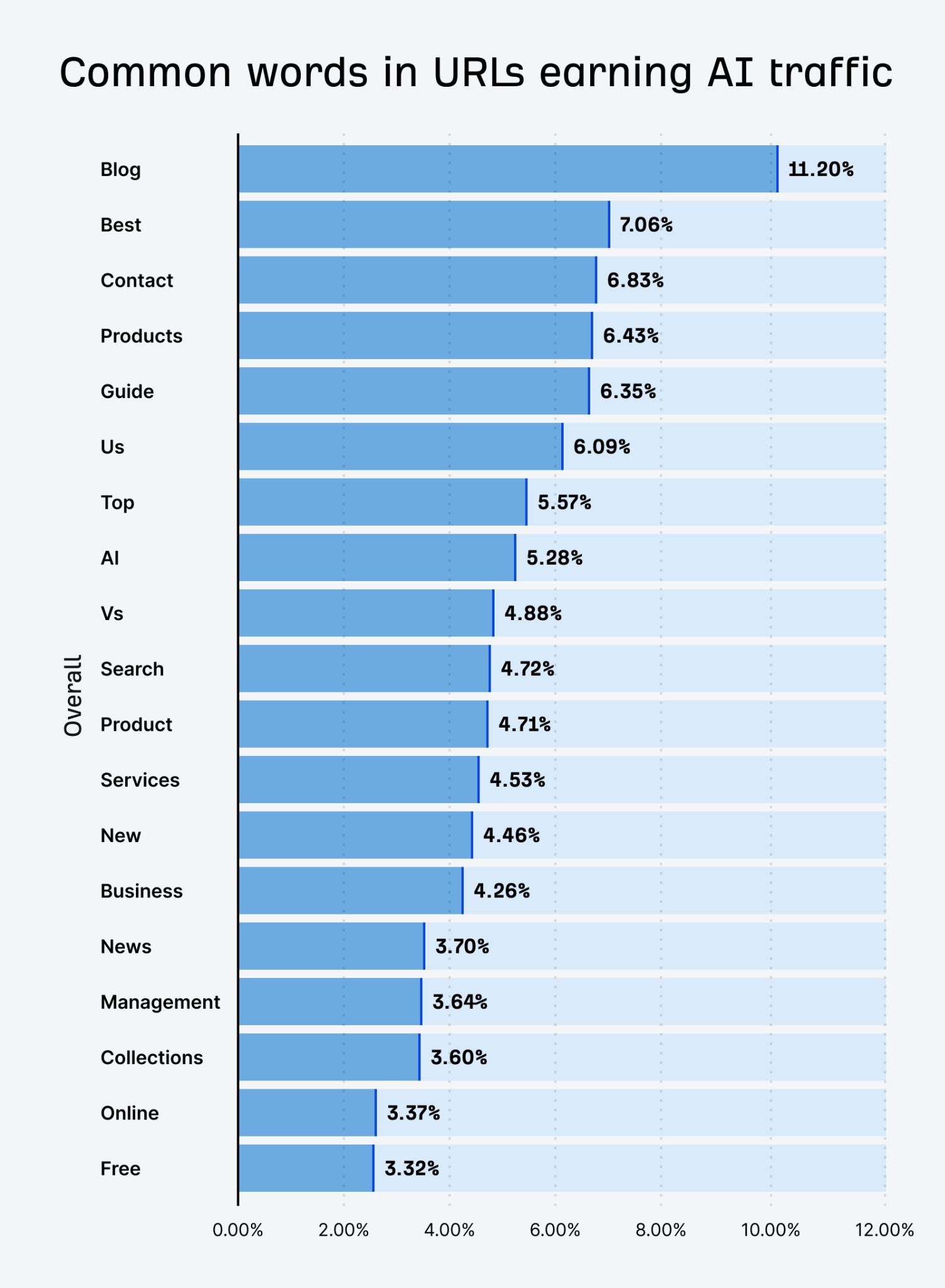
Aside from the obvious “blog” pages, ‘’best” (7.06%), “top” (5.5%), “vs” (4.88%) and general comparison content seems to earn the greatest proportion of AI traffic.
Guides (6.35%) and instructional content also increase traffic from AI chatbots.
And people tend to click-through more when researching products, brands, and services, as evidenced by the presence of the ngrams “contact” (6.8%), “products” (6.43%), “product” (4.71%), and “services” (4.53%).
Attributable AI traffic is just the tip of the iceberg when it comes to the value of AI.
In our last piece of research, we noticed that AI traffic is being underrepresented due to reporting as “direct” traffic in analytics tools.
But, even without tracking anomalies, AI traffic would be modest, because users are able to do more of their research without clicking.
The reality is AI drives significant brand awareness, creates more informed audiences, and delivers more qualified leads—it’s not just about traffic.
Wrapping up
AI is the shiny new thing. Everyone wants to get involved. But AI traffic is still minimal compared to more established channels—you risk over-investing if you get carried away by the hype.
Like social media keeps you on-platform sharing interesting content, AI keeps you on-platform having interesting conversations—sending out external traffic is not the goal.
For that reason, AI will never be one of the top referrers in your site analytics.
Its main benefits are increased brand awareness and positive brand sentiment, through on-platform mentions.
Trackable AI traffic and conversions are a happy byproduct—treat them as your secondary KPIs.
Before you commit to building your AI traffic, ask yourself: are my audience actually using AI to find my business?
Make a judgement call based on regional and vertical AI traffic usage, and your own customer data.
Once you’re confident your audience is there, track AI broadly and regularly.
Track brand mentions in AI
Use a tool like Ahrefs Brand Radar to monitor the growth of your brand mentions, and track brand sentiment in AI.
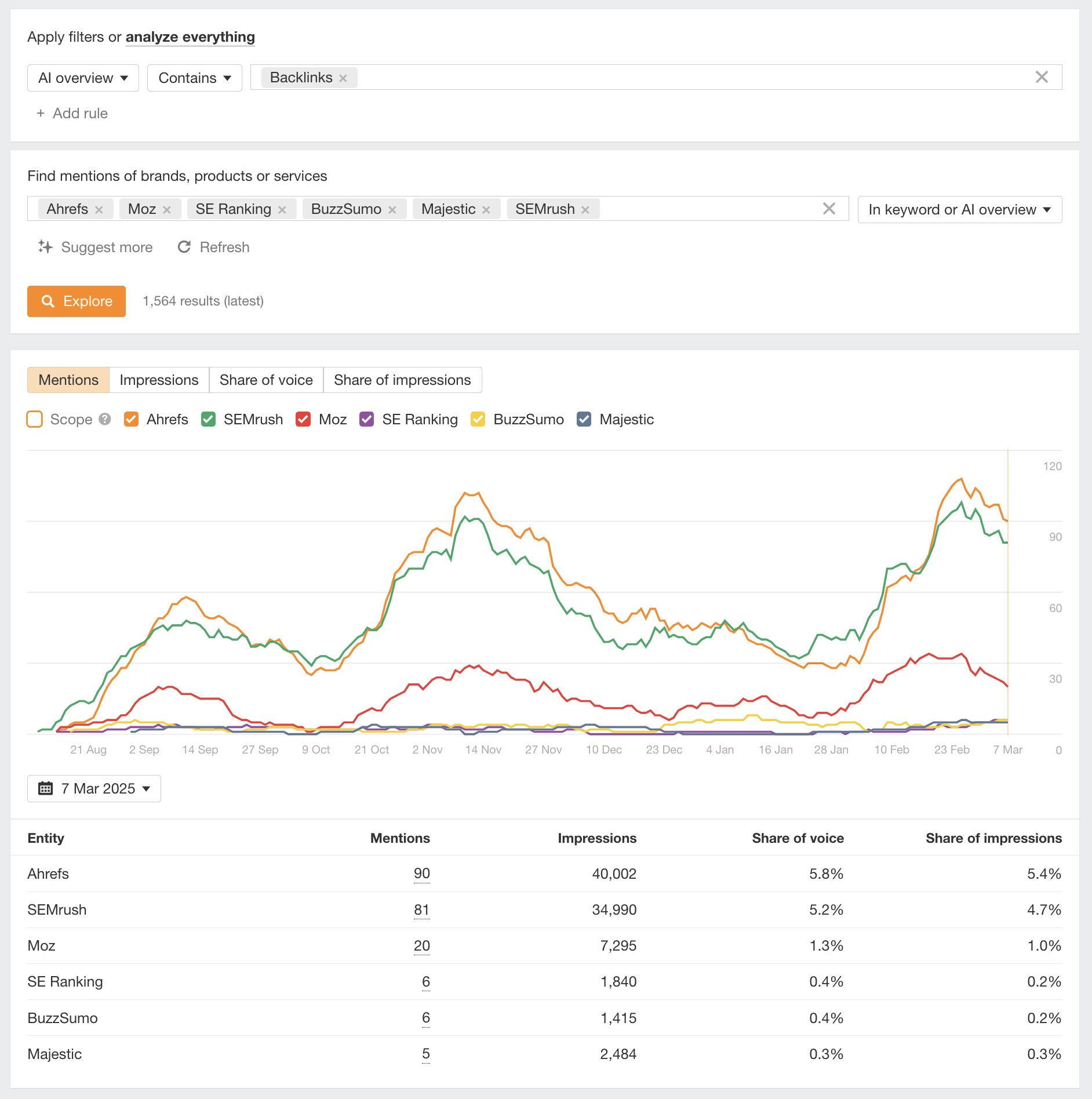
Track AI traffic
Set up AI traffic reports to track chatbot referral trends…
…and optimize pages that are earning actual visits.
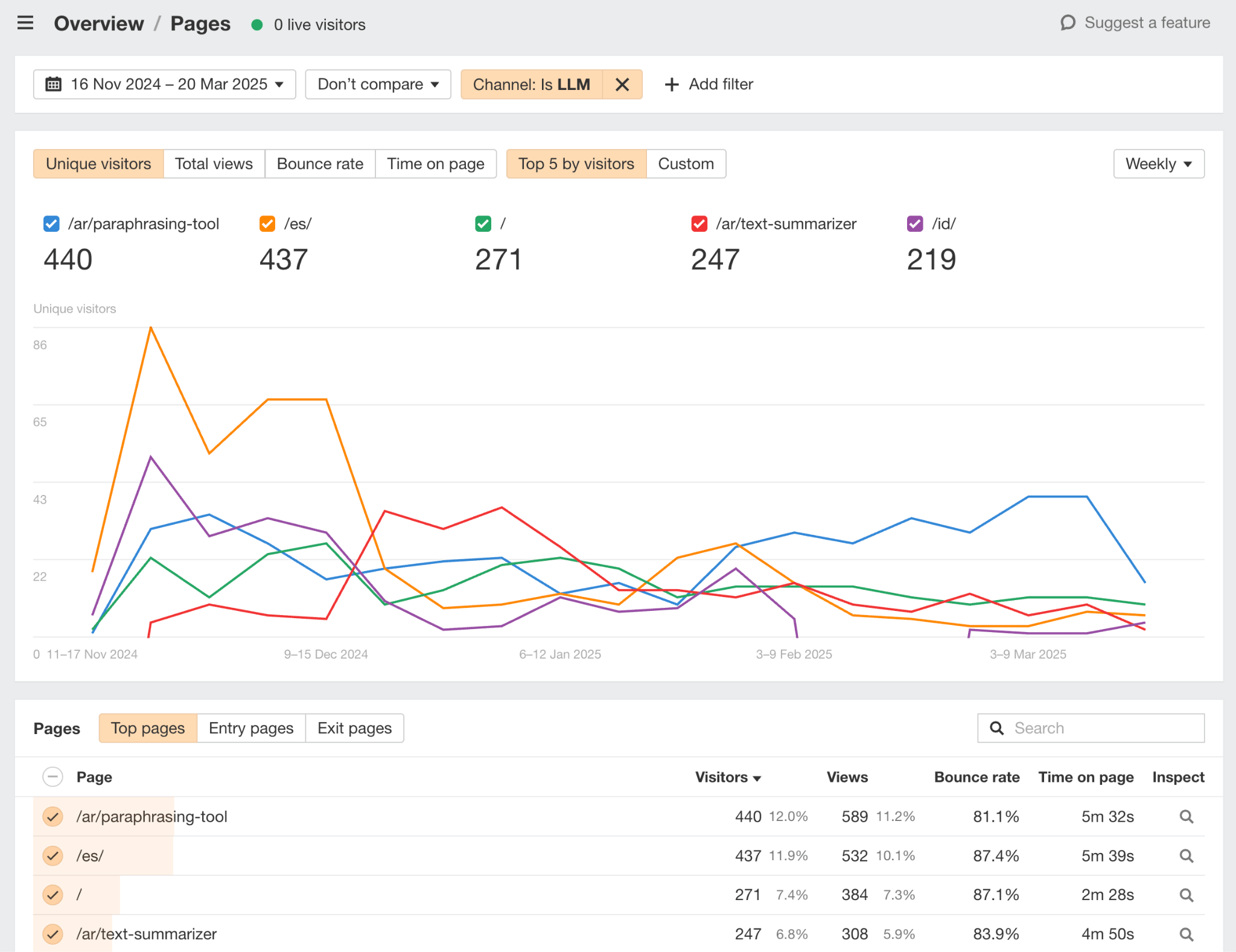
Track AI conversions
Improve your conversion tracking to better attribute any AI-assisted conversions.
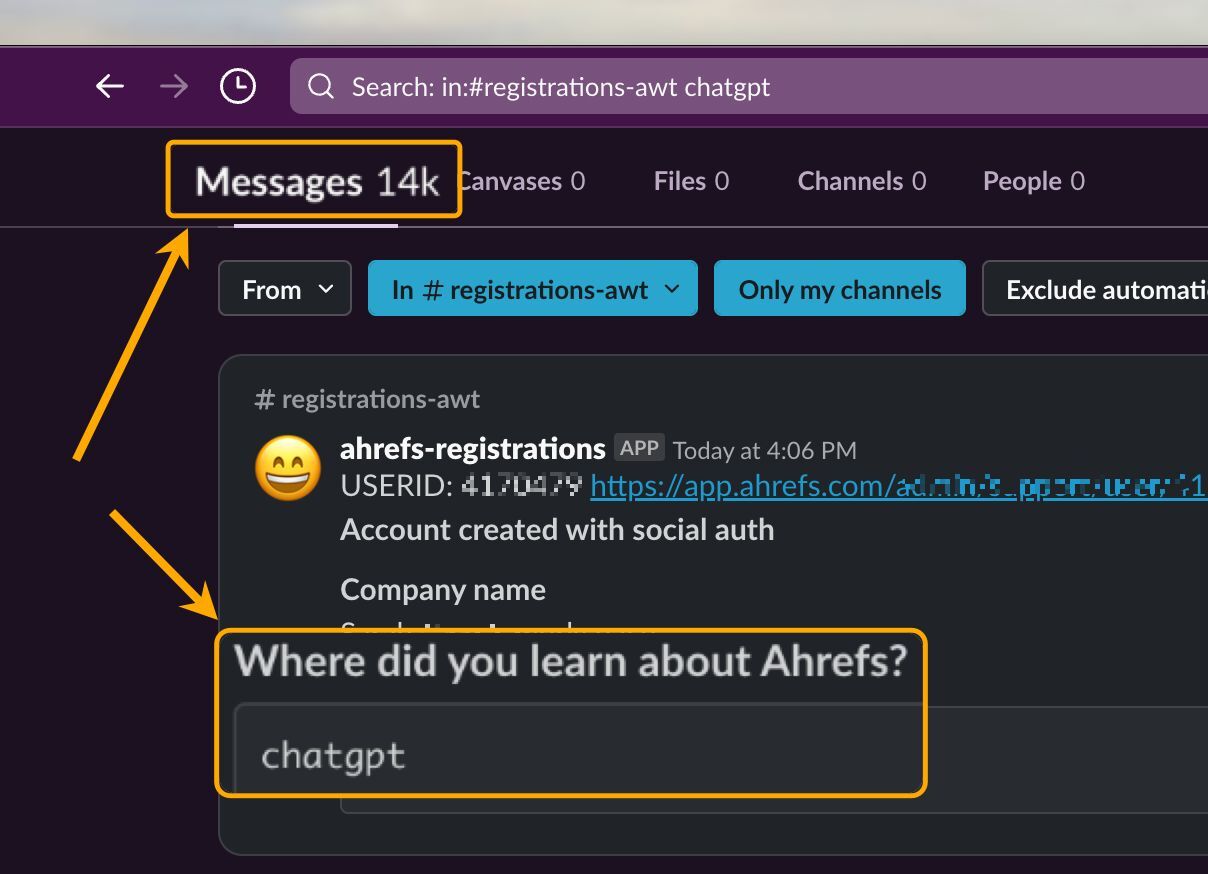
AI traffic is modest, and while it’s not something to ignore, you need to be smart about how you approach it.

